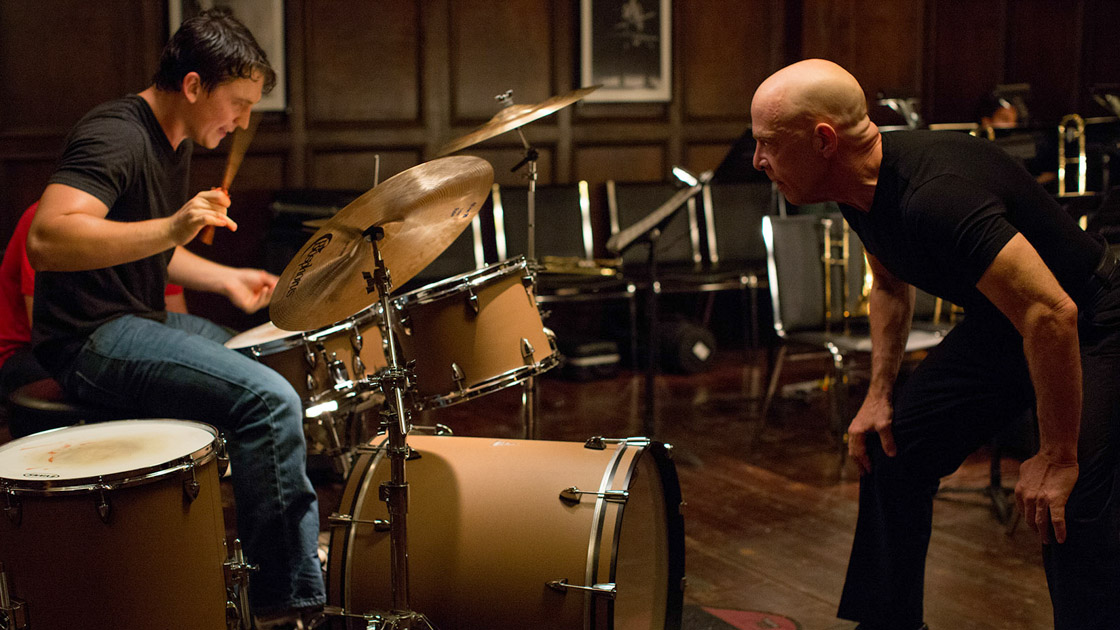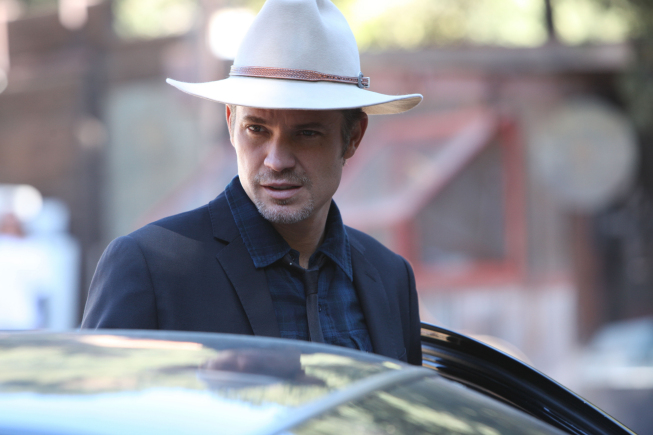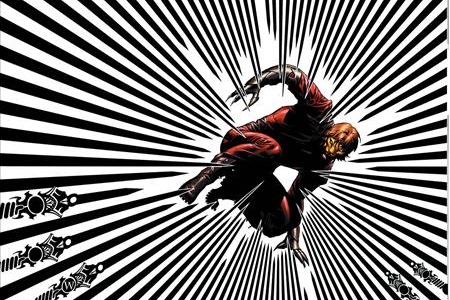 Whiplash
Whiplash
Written and directed by Damien Chazelle
USA, 2014
Originally birthed as an 18-minute short, premiering at the 2013 Sundance Film Festival, Whiplash went on to garner enough attention to become a feature full-length film. Thank God it did. The feature-length version of Whiplash masterfully showcases the pressures of perfection in a tightly plotted, beautifully shot, soberly performed package. From the creative genius of sophomore director Damien Chazelle comes a semi-autobiographical experience just as exhilarating as it is shocking. Whiplash tells the story of Andrew Neyman (Miles Teller), a promising young drummer who enrolls at an elite music conservatory, where his dreams of greatness are mentored by Terence Fletcher (J.K. Simmons), a ruthless music conductor who will stop at nothing to realize his student’s potential talent. With the audience on the edge of their seats, the question constantly being taunted is thus: how far is too far for pushing a student towards greatness?
 Simmons and Teller both hold their own when trying to answer the evasive question. Simmons is diabolically crass and quick-witted when need be, yet overtly scary when loud and violent. In a scene where Fletcher levels with newcomer Neyman by asking him questions about family and boosting his confidence on playing for his precisely chosen Studio band, Fletcher comes to use his newfound information against Neyman during his many tantrums. Simmon’s Fletcher rides a fine line of never being too trustworthy or endearing for our main character. Yet Teller’s Neyman is gullible toward Fletcher’s deceit. Neyman’s quest for perfection fuels Fletcher’s outbursts, setting up great tension and high stakes for our characters. Andrew Neyman is the breakout performance for Miles Teller, placing the actor on a higher echelon from prior acting roles (Footloose, That Awkward Moment, Project X). His smart-mouthed mannerisms are still prevalent in the film (one family dinner scene is both hilarious and smartly paced), but his acting chops are clearly raised. Not only does Miles give stellar drum solos, but his angle as an egotistic savant falls comfortably outside of his acting wheelhouse.
Simmons and Teller both hold their own when trying to answer the evasive question. Simmons is diabolically crass and quick-witted when need be, yet overtly scary when loud and violent. In a scene where Fletcher levels with newcomer Neyman by asking him questions about family and boosting his confidence on playing for his precisely chosen Studio band, Fletcher comes to use his newfound information against Neyman during his many tantrums. Simmon’s Fletcher rides a fine line of never being too trustworthy or endearing for our main character. Yet Teller’s Neyman is gullible toward Fletcher’s deceit. Neyman’s quest for perfection fuels Fletcher’s outbursts, setting up great tension and high stakes for our characters. Andrew Neyman is the breakout performance for Miles Teller, placing the actor on a higher echelon from prior acting roles (Footloose, That Awkward Moment, Project X). His smart-mouthed mannerisms are still prevalent in the film (one family dinner scene is both hilarious and smartly paced), but his acting chops are clearly raised. Not only does Miles give stellar drum solos, but his angle as an egotistic savant falls comfortably outside of his acting wheelhouse.
 Tightly scripted without a trace of fat, the film is essentially set up around the Neyman and Fletcher characters. Although Paul Reiser and Melissa Benoist are fine in their roles as father and girlfriend, but they appear only as mere distractions and give far lesser performances to those of our main characters. Instead, score and cinematography breath distinguished life into the film. Jazz is clearly the motive behind Neyman’s obsession and Fletcher’s intolerance, making it a central figure to the film. With an ensemble of fake and real musicians in what feels like every frame, the culture is well-defined and felt with every song. Cinematographer Sharone Meir vibrantly shoots Whiplash with yellow filters reminiscent of a Steven Soderbergh film. In doing so, the film grounds itself in a timeless trance, akin to that of the jazz era. Shades of yellow bounce off of brass and symbols, absorbing the audience’s attention fully and directly onto each instrument. Meir and Chazelle shoot the film in a tight scope to get a close look of the drummer’s perspective. We see the symbols vibrating, bloody blisters popping, sticks cracking – bringing the audience closer to life of a jazz drummer. If there is any doubt that jazz isn’t a living entity in Whiplash, Chazelle and Meir brilliantly prove otherwise with the use of pioneering techniques in both sight and sound.
Tightly scripted without a trace of fat, the film is essentially set up around the Neyman and Fletcher characters. Although Paul Reiser and Melissa Benoist are fine in their roles as father and girlfriend, but they appear only as mere distractions and give far lesser performances to those of our main characters. Instead, score and cinematography breath distinguished life into the film. Jazz is clearly the motive behind Neyman’s obsession and Fletcher’s intolerance, making it a central figure to the film. With an ensemble of fake and real musicians in what feels like every frame, the culture is well-defined and felt with every song. Cinematographer Sharone Meir vibrantly shoots Whiplash with yellow filters reminiscent of a Steven Soderbergh film. In doing so, the film grounds itself in a timeless trance, akin to that of the jazz era. Shades of yellow bounce off of brass and symbols, absorbing the audience’s attention fully and directly onto each instrument. Meir and Chazelle shoot the film in a tight scope to get a close look of the drummer’s perspective. We see the symbols vibrating, bloody blisters popping, sticks cracking – bringing the audience closer to life of a jazz drummer. If there is any doubt that jazz isn’t a living entity in Whiplash, Chazelle and Meir brilliantly prove otherwise with the use of pioneering techniques in both sight and sound.
 If there is something to criticize in this masterpiece, it must be the handling of some of the heavier themes – suicide, in particular. The notion of suicide is touched upon when dealing with a student whom Fletcher may have pushed too far, but is frankly glossed over for the sole purpose of character development. Consequences are dealt with, but hastily and half-heartedly (although Simmons’s eulogy of a monologue sheds copious amounts of light onto Fletcher’s inner conflicts), and they do not give justice to the issue directly at hand. Yet at 106 minutes, dealing with so many issues at hand may be an impossible task to share equally and adequately. Nonetheless, Whiplash is well deserving of its critical attention in recent months for artistic and social awareness. As school bullying has become a popular topic in filmmaking in recent years, as with the 2012 documentary Bully, Whiplash will easily raise awareness of this equally victimizing issue. As political as it is entertaining, Whiplash combines the two spectrums in a near perfect film, making it a bright contender for one of the best of the year.
If there is something to criticize in this masterpiece, it must be the handling of some of the heavier themes – suicide, in particular. The notion of suicide is touched upon when dealing with a student whom Fletcher may have pushed too far, but is frankly glossed over for the sole purpose of character development. Consequences are dealt with, but hastily and half-heartedly (although Simmons’s eulogy of a monologue sheds copious amounts of light onto Fletcher’s inner conflicts), and they do not give justice to the issue directly at hand. Yet at 106 minutes, dealing with so many issues at hand may be an impossible task to share equally and adequately. Nonetheless, Whiplash is well deserving of its critical attention in recent months for artistic and social awareness. As school bullying has become a popular topic in filmmaking in recent years, as with the 2012 documentary Bully, Whiplash will easily raise awareness of this equally victimizing issue. As political as it is entertaining, Whiplash combines the two spectrums in a near perfect film, making it a bright contender for one of the best of the year.
– Christopher Clemente





